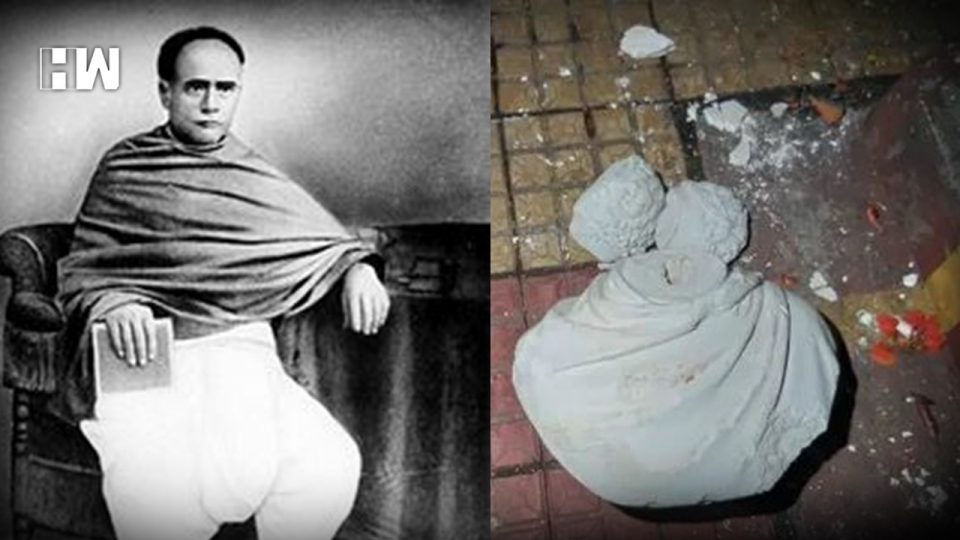Ishwar Chandra Vidyasagar, a reformer who changed Bengal in the 19th century Bengal has become the center point of politics in the changing political demographics of West Bengal in the ongoing Lok Sabha elections.
Vidyasagar’s statue was vandalised on Tuesday during the tussle between the BJP and TMC workers in the violence which broke out during the roadshow of BJP president Amit Shah in Kolkata.
Born as Ishwar Chandra Bandhopadhya, the Bengali philosopher, reformist was entitled with the honour of Vidyasagar by the Sanskrit University in Bengal for his deep knowledge in Sanskrit and Philosophy in 1839. In 2004 he was ranked number 9 in the BBC polls of Greatest Bengali of all time.
Vidyasagar along with fellow reformers Ramgopal Ghosh and Madan Mohan Tarkalankar opened several schools of girls in the 19th century along with starting Sanskrit schools for people from the lower caste.
Credited for uplifting the status of women in India, Ishwar Chandra also promoted the cause of Widow remarriage in India and introduced the practice and pushed for the Widow Remarriage Act XV of 1856.
After his death in 1891, Rabindranath Tagore reverently wrote about him: “One wonders how God, in the process of producing forty million Bengalis, produced a man!”
As an independent media platform, we do not take advertisements from governments and corporate houses. It is you, our readers, who have supported us on our journey to do honest and unbiased journalism. Please contribute, so that we can continue to do the same in future.

